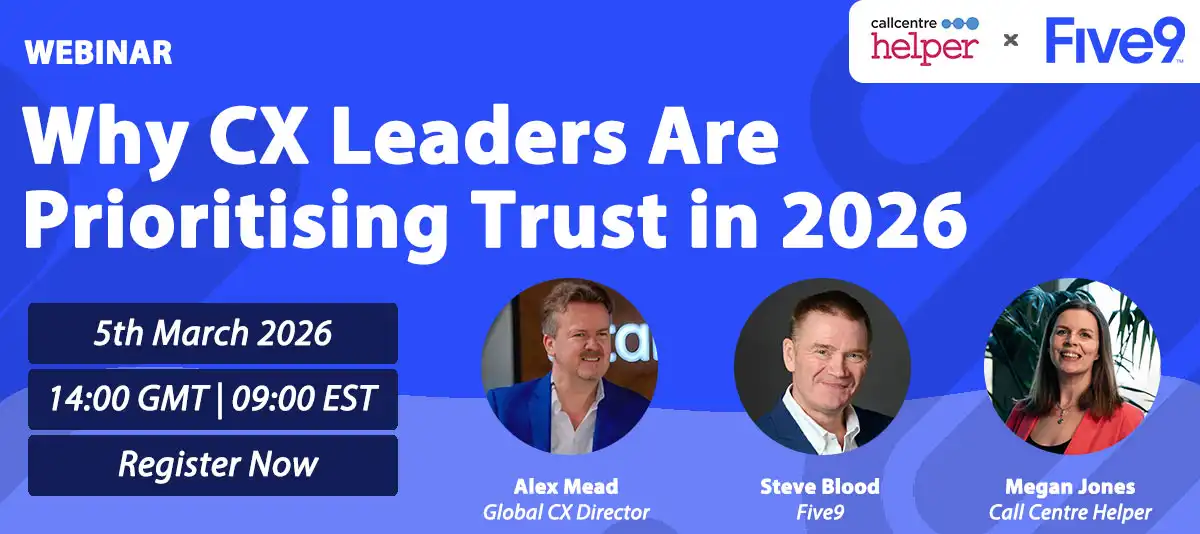Most of us dread dealing with them, but call centres are hard to avoid as an increasingly widespread aspect of modern life. Now a new study from the Open University (OU), published in the Journal of Sociolinguistics, has opened up the world of call centres and examined how pressurised call centre agents take short cuts to politeness and over-use phrases which can “offend the ears”.
Short cuts to politeness
Sociolinguist Dr Anna Kristina Hultgren analysed the linguistics of a Scottish call centre, getting rare access to recordings of customer service calls, sitting in on training and interviewing staff. She found that the pressure to complete calls whilst building rapport with the customer led to short cuts to politeness.
A statistical analysis found that, despite agents being trained in and encouraged to use a range of different linguistic strategies to create rapport with the customer, one particular way was clearly preferred over others: using the customer’s name. This is because using the customer’s name is the most time-effective way of creating rapport with the customer, enabling agents to keep the call under control while also giving an impression of personalised customer care.
In one example from the research, an agent used the customer’s name five times in a relatively short interaction of just a few minutes:
“Hi Chris…I’m just bringing up the details in front of me, Chris…What company is it you’re calling from, Chris?… Can I have your telephone number, Chris?”
Dr Hultgren said: “By using the customer’s name, the agent resolves the conflicting requirements they face between processing calls quickly and giving an impression of personalized customer care.”
However, with the British consumer association Which commenting that “unfortunately, poor customer service from call centres has become a 21st century bug-bear for too many people”, there is no evidence that the balance between personal customer care and efficiency has been struck.
Make small talk, but not too much
A one-second fall in call time per agent would save a business an estimated £2 million pounds (Miozzo and Ramirez 2003) so time is of the essence for agents. But call centres are aware that they need to counterbalance efficiency with customer care, and in today’s saturated market, they increasingly compete on service.
Almost half of the staff training time in call centres is typically devoted to training in “soft skills” – how agents should interact and speak with customers. Staff are encouraged to instigate small talk, ask if there’s anything else they can help with, and close the call with a personal greeting.
Dr Hultgren says: “A female agent said that if a customer called in to notify a change of address she would use this as a chance to engage in small talk by saying ‘Oh, a new house! Are you moving anywhere nice?’ In a call assessment, a male agent was commended for ‘chatting up’ a female customer. At the same time, agents are rewarded for taking charge of the calls efficiently and, revealingly, although they are expected to finish every call with ‘Is there anything else I can help you with today?’, the best answer from the customer is ‘no’ so that the call can be ended.”
Don’t blame the agent
Working in a call centre is stressful. Call centres are notorious for absenteeism, emotional exhaustion, employee burnout and high staff turnover, and agents are constantly at risk of angry outbursts from customers.
This study suggests that call centre agents shouldn’t be blamed for any shortcomings in service. Agents are skilfully adapting their language to try to please everyone. Their language is a natural consequence of the inherent conflict in call centres between customer care and a fast service.
Dr Hultgren said: “Ultimately, it’s the way in which we choose to organise our society that will shape the way in which language is used. The relentless emphasis on targets and performance indicators has led to a new type of politeness emerging. A rationalised type of politeness has emerged out of the conflict between personalised and efficiency.”
Author: Rachael Trickey
Published On: 10th Feb 2017 - Last modified: 20th Jul 2017
Read more about - Archived Content, Language



























